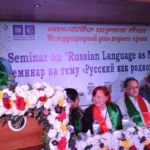Shinzo Abe, the former prime minister of Japan, was shot in the back. Murdered in cold blood. It was an act of depravity carried out in broad daylight on July 8 at a campaign rally in the ancient city of Nara, Japan’s first established capital. Gun deaths in Japan are incredibly rare. In all off 2021 there was just one. Gun ownership in the country, per head of population, is the lowest of members of the G7, at just 0.3 per 100 people.
Handguns are banned but weapons can be purchased, under strict guidelines, for hunting.
Those wanting to apply for a license are subject to mental health and drug checks, as well as criminal record checks.
This should make the streets safe. But there is still at times a sense of menace. Attacks on politicians in Japan are not common but they are also not unheard of. In 1960 in what seems like a cruel coincidence, Abe’s grandfather, Nobusuke Kishi who was prime minister at the time, survived a stabbing by a far-right fanatic. Kishi was suspected of war crimes but never indicted as the Korean War disrupted Washington’s plans of a Nuremberg style procedure in Tokyo to bring war criminals to trial.
In the same year, the leader of the Socialist Party fatally stabbed in 1960 by a 17-year-old rightist while making a speech in Tokyo.
In the years that followed, Prime Minister Takeo Miki, Deputy Prime Minister Shin Kanemaru and Prime Minister Morihiro Hokosawa were either attacked or shot in 1975, 1992 and 1994, respectively. They all survived.
In 2007, the mayor of the city of Nagasaki was shot and killed in an attack blamed on an organized crime gang.
The country’s streets are normally serene, even polite. With one glaring exception. The far right are allowed cruise up and down the roads in what are called sound trucks, in reality large vehicles with loudspeakers attached, bellowing out racist bile against the Chinese and Koreans.
To these fanatics Abe was a hero. He was the man who was going to re-arm Japan by reinterpreting Article 9 of the Japanese Constitution.
The article is written in crisp and clear language and does not need reinterpretation. “Aspiring sincerely to an international peace based on justice and order, the Japanese people forever renounce war as a sovereign right of the nation and the threat or use of force as means of settling international disputes. (2) To accomplish the aim of the preceding paragraph, land, sea, and air forces, as well as other war potential, will never be maintained. The right of belligerency of the state will not be recognized.”
His death, of course, risks the chance that his legacy could pave the way to overturn Japan’s status as a pacifist nation. Abe was a powerful advocate of doubling Japan’s defense spending to 2 percent of GDP. On Taiwan he bluntly warned Beijing they should have no doubts about Japan’s response if China pursued military action against Taiwan. In Beijing this was seen as confirmation that the United States and Japan would respond militarily and therefore Japan posed a direct military menace to what Beijing views as an internal matter. This was the first time since 1945 that a leading Japanese figure had threatened to take military action.
Abe was a frequent visitor to Yasukuni, a shrine in central Tokyo that celebrates Tokyo’s militaristic past. No emperor has gone to the shrine since 1975. In 1978 a committee overseeing the shrine said that the souls of Japanese war criminals would be interred and venerated there. In 1978 the souls of 14 Class-A War Criminals (those who plan and conduct wars of aggression) seven of whom were hanged after the Tokyo trials, were enshrined.
This was an incredible victory for the militarists but it had to be kept quiet, at least initially. The news was not publicized until 1979.
Abe stopped going to the shrine as prime minister in 2013 in large part due to pressure from China and South Korea. Though he visited in 2020 just days after stepping down, sending a clear, and to South Korea and China, disturbing message.
Abe publicly questioned whether Japan’s wartime conduct in Asia could be described as aggression again angering Seoul and Beijing.
“The definition of what constitutes aggression has yet to be established in academia or in the international community,’’ he told parliament
“Things that happened between nations will look differently depending on which side you view them from.”
Abe did try to resurrect the moribund economy but his efforts, though widely publicized, met with little success.
Massive monetary easing, fiscal stimuli and structural reforms were carried out under the banner of Abenomics but to little or no avail.
Policies are often presented in poetry, and government is normally conducted in the less-idealistic manner of prose. But Abe’s attempts at reinterpretation tried to shape the future by ignoring the past. South Korea and China are painfully aware that the lessons of history, unless addressed, have a nasty habit of repeating themselves.
Source : Counter Punch
















Add Comment